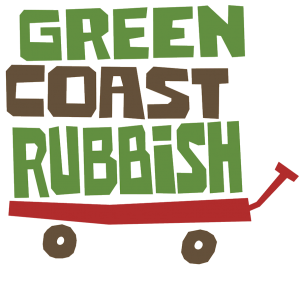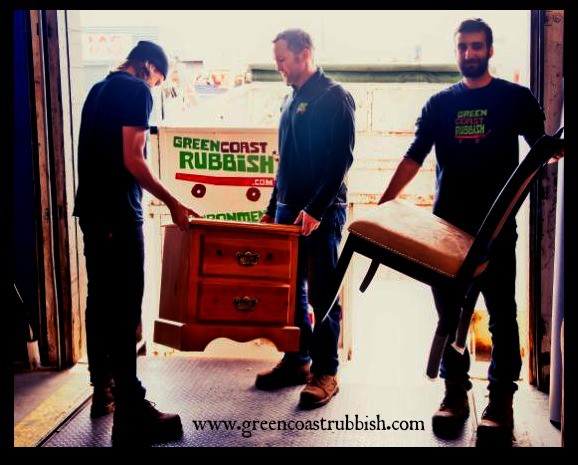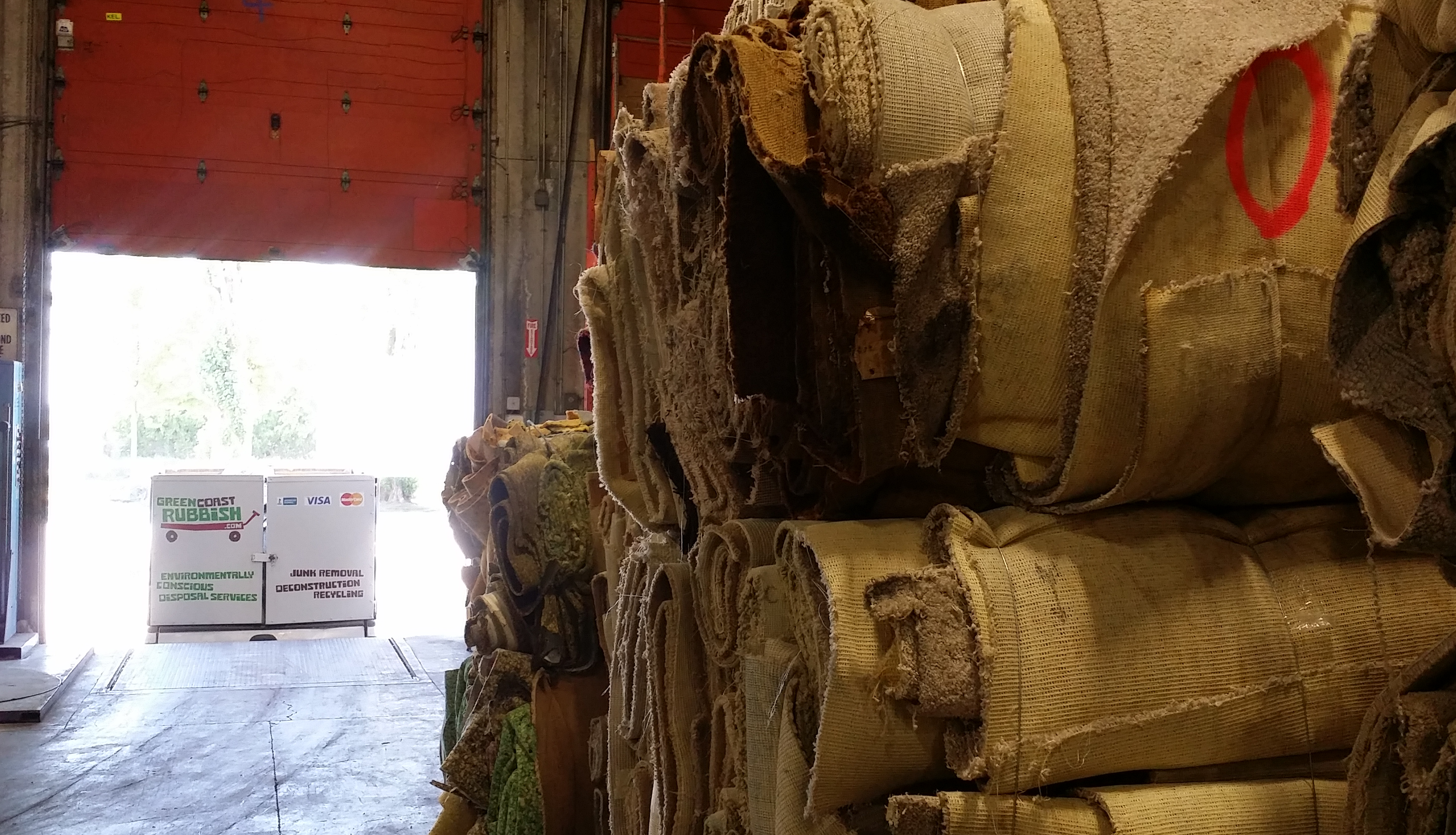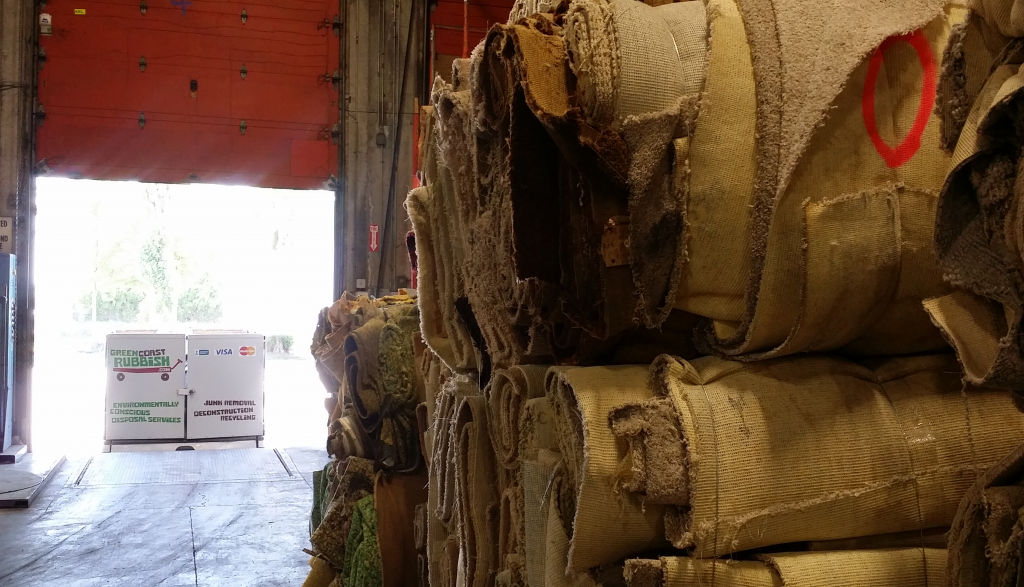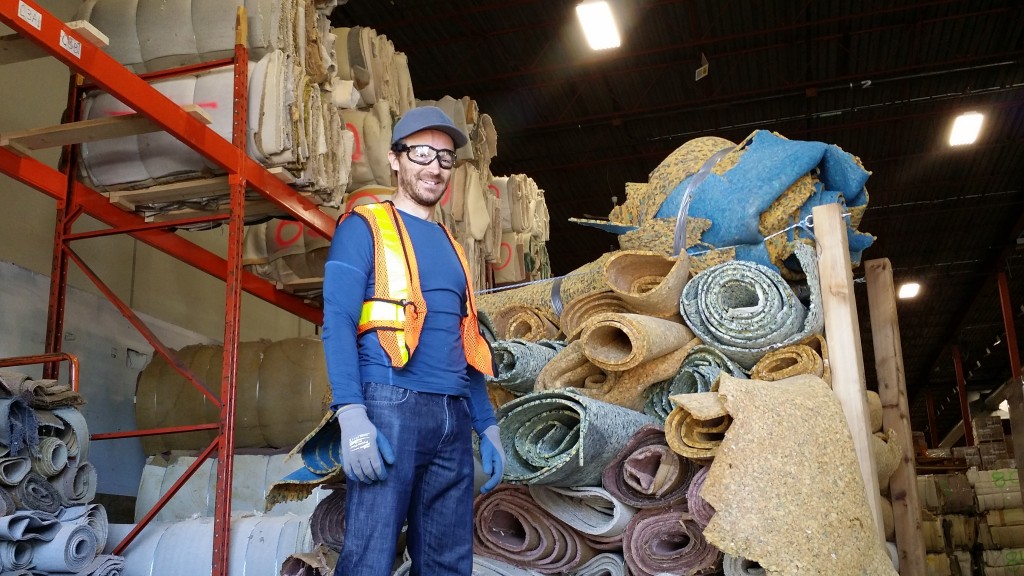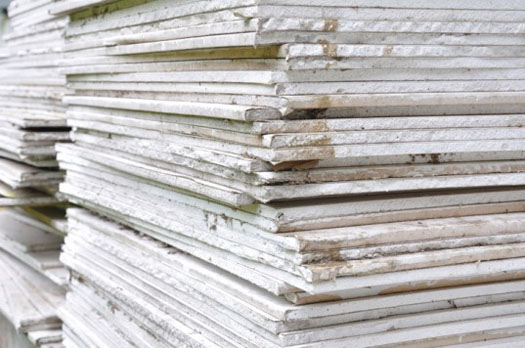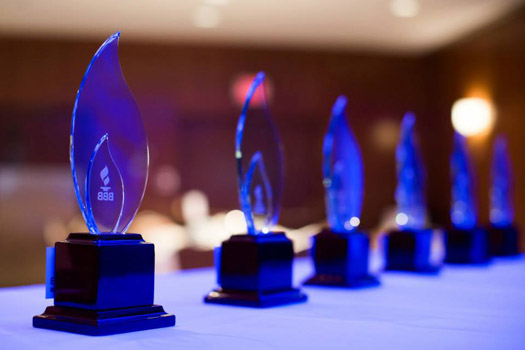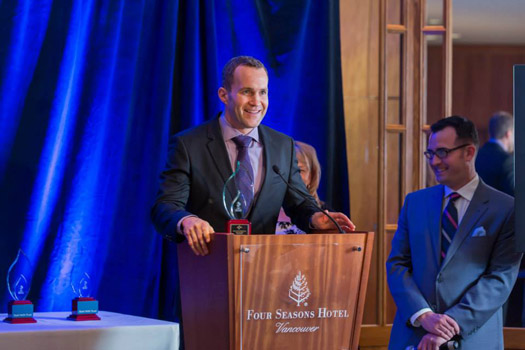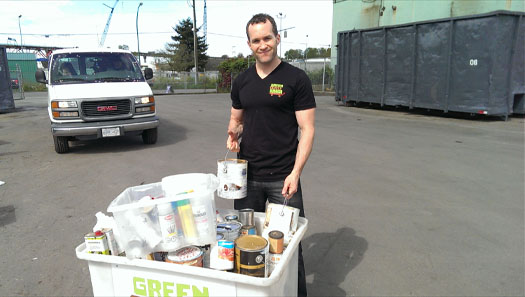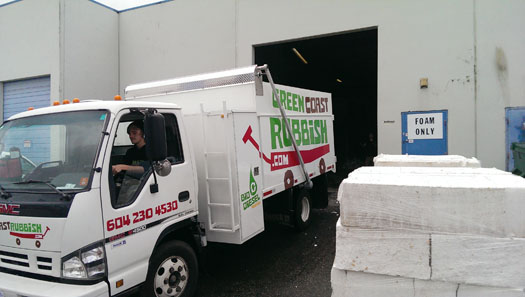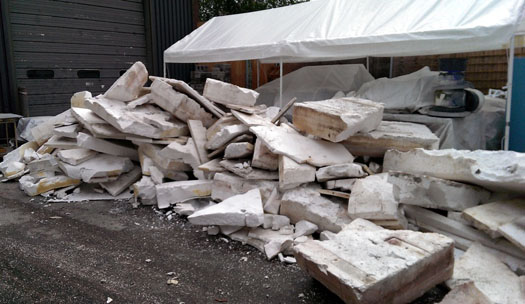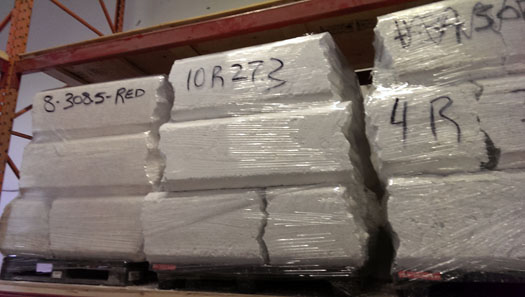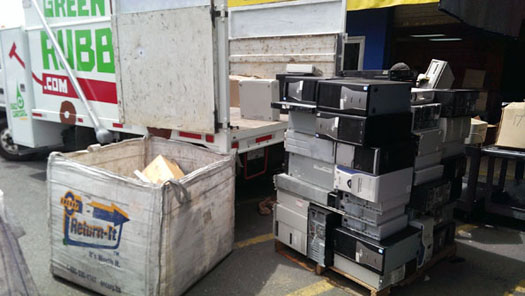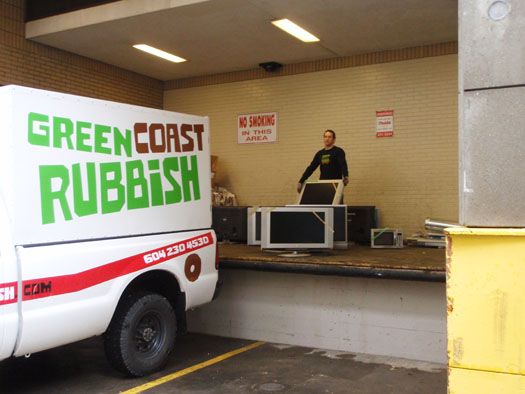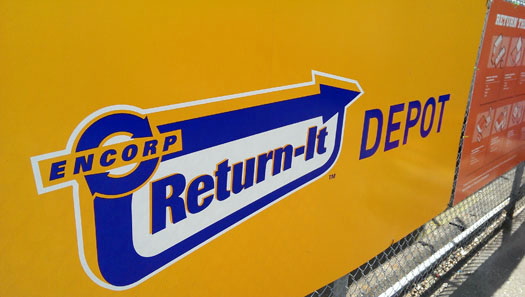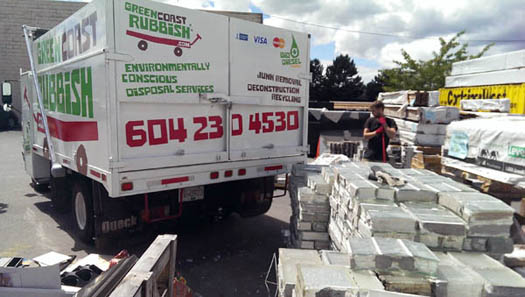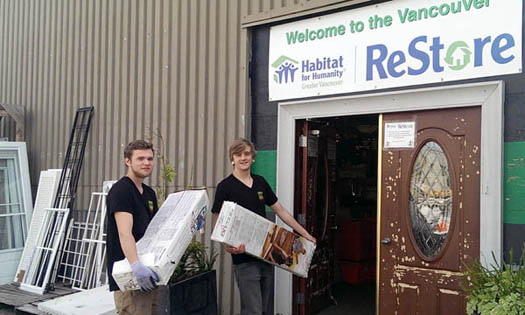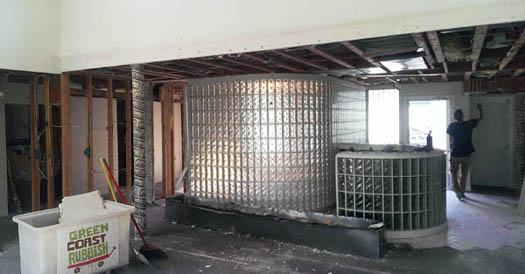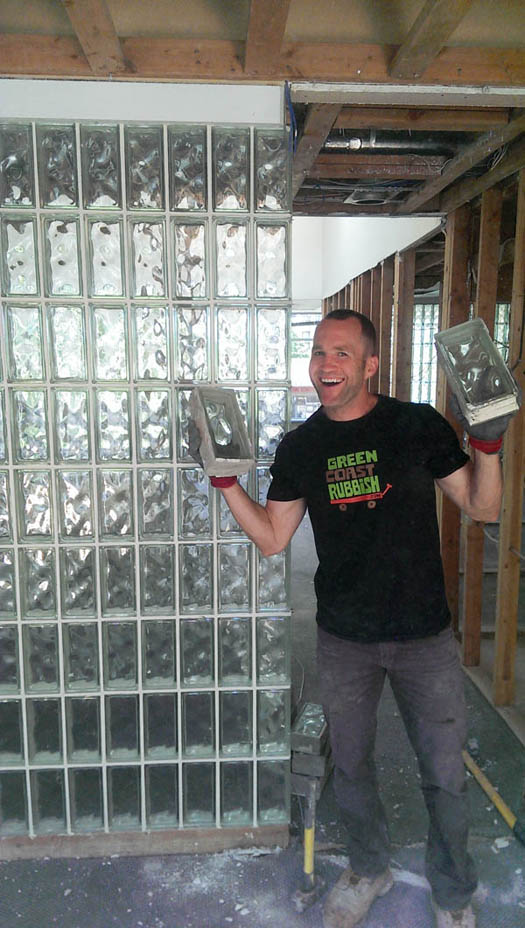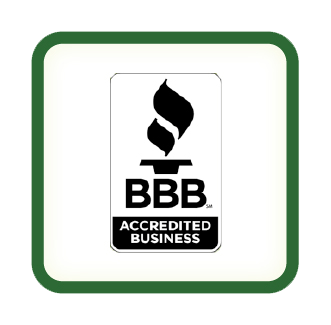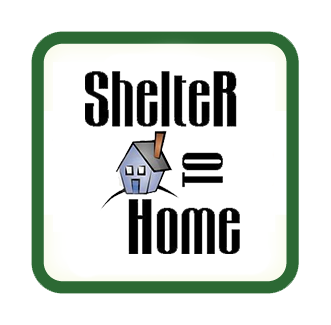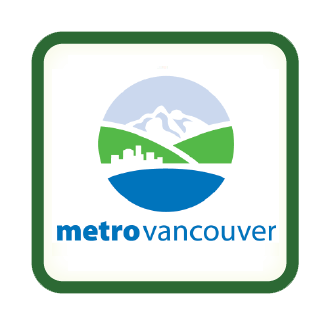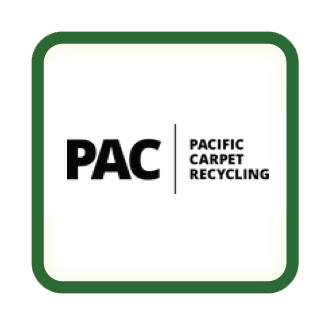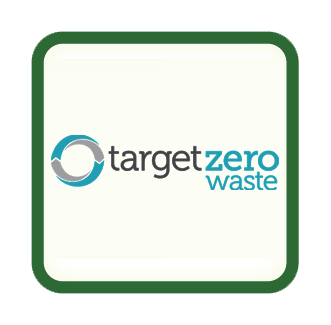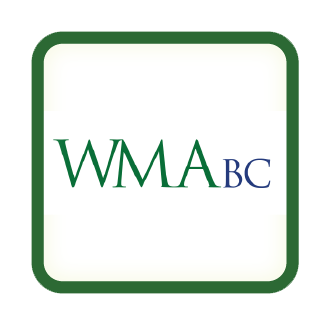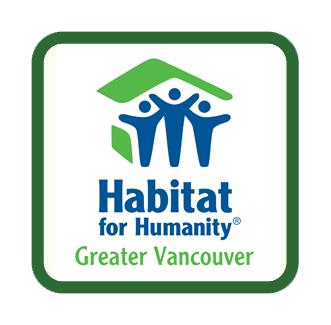Posts
Pacific Carpet Recycling
/in Carpet Recycling, Commercial Rubbish Removal and Recycling, Plastic Recylcing, Property Clean-up Services, Recycling, Renovation Waste/by Green Coast RubbishWe love to work closely with green conscious businesses who care as much the environment as we do. That’s why we’re really excited to have Pacific Carpet Recycling as a partner. They are the only carpet and underlay recycler in Vancouver, and they’re doing great work around the Lower Mainland.
Carpet is something that most people take for granted; not really giving it much thought until they are looking to renovate a space. But the amount of waste created from carpet being thrown into our landfills is mindblowing — as much as 80 million lbs are thrown into garbage dumps in Metro Vancouver alone! Even worse, it can take as long as 50 years for it to break down once it’s in there. But it doesn’t have to be this way. Being a petroleum-based product, many types of carpet and underlay are recyclable, and can be made into new flooring, clothing, furniture, auto parts, and other items we use on a daily basis.
In recent years, PET (Polyethylene terephthalate) carpet has gained popularity, because it’s manufactured using recycled pop bottles. In theory, this sounds like an excellent green alternative, but at the present time there are no effective means to recycle carpet once it is made from this material. If you are looking for the most environmentally mindful flooring, PCR suggests opting for Nylon carpeting instead, which is completely recyclable.
Though Pacific Carpet Recycling does not deal directly with the consumer public, Green Coast Rubbish has partnered exclusively with them, allowing us to remove the carpet from your home or business (and any other waste that you might need hauled away) and deliver it to PCR on your behalf. If you have any questions about recycling carpet, or the work we do at Green Coast Rubbish, please never hesitate to contact us.
Disposal Ban of Organics in Metro Vancouver
/in Commercial Rubbish Removal and Recycling, community, composting, Organic Waste/by Green Coast RubbishVancouver continues to move toward its goal of becoming the Greenest City by 2020. By imagining solutions and opportunities that can help residents and businesses to more effectively deal with household waste, they get closer every year. It’s estimated that nearly 35-40% of everything that we throw away is food waste; if diverted into a composting system, this adds up to a substantial amount kept out of our landfills. Which is why, starting in 2015, Metro Vancouver will be instating a ban on disposing organics and food waste into regular garbage bins.

There are huge community and environmental benefits to composting. As the food waste breaks down through natural processes, it can create valuable fertilizers that can help to enrich the soil with potassium, nitrogen, and phosphorus. It reduces overall greenhouse gas emissions and lengthens the life of our existing landfills, saving valuable space and local resources.
For some eye-opening stats on the amount of organic waste produced every day, as well for solutions on how to responsibly dispose of compastable waste visit our past blog Getting Serious About Organic Waste Reduction. If you are interested to learn more about the process that your organic waste goes through when it is processed you can check-out Part 2 of our Organic Waste Reduction blog.
Some things that can go into the compost bin:
- Fruit & vegetable scraps
- Eggshells, dairy
- Meat & fish bones
- Teabags
- Coffee filters & grounds
- Breads, pasta, rice
- Food soiled paper products (pizza boxes, napkins, cardboard egg cartons)
- Grass, leaves, weeds, plants
- Cooked food & grease
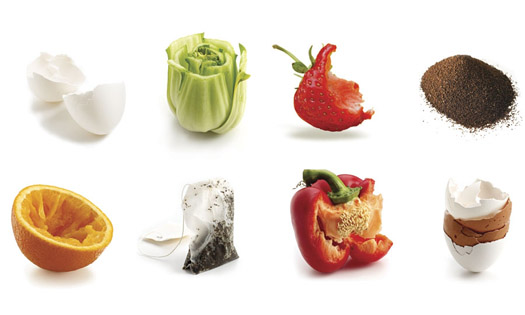
Some prohibited items:
- Any type of plastic (including compostable/biodegradable plastic bags)
- Rocks, soil
- Diapers
- Animal waste
- Wood products & lumber
- Branches bigger than 10 cm (4″) in diameter, and more than 0.5m (1.6ft) in length
These developments are very much in-line with the ideology of Green Coast Rubbish. We’ve seen the evidence firsthand of how much these compostable items can add up – in 2013 alone, we diverted 30.39 tonnes of organic material! By actively working together toward creating composting solutions with Metro Vancouver, we can all contribute to the success of this important program in our communities.
For more information about composting and the upcoming ban on organics, check out the Metro Vancouver website, and the City of Vancouver’s Green Bin Program.
Drywall Recycling
/in Commercial Rubbish Removal and Recycling, Renovation Waste/by Green Coast RubbishDrywall (also known as gypsum, gyprock or sheetrock) is a highly recyclable and widely used construction material that is originally derived from the common mineral gypsum. A unique characteristic of drywall is that it can be essentially recycled forever with no degradation to the material. Old and discarded drywall can be ground up, turned into a paste and repressed into new panels.
Originally developed in the early 1900’s, it became popular as a lightweight and more convenient alternative to traditional materials of lath and plaster, which were typically used at the time.
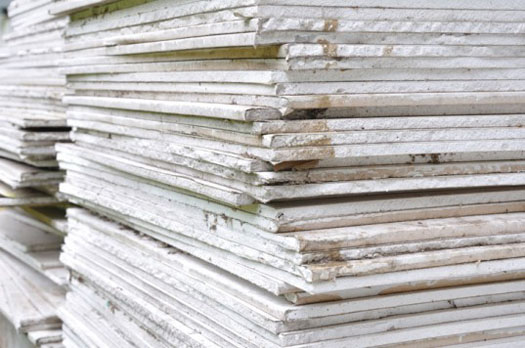
Today drywall can be found throughout the world, and it is typically used when constructing interior walls and ceilings. Though drywall is 100% recyclable, if it’s not disposed of properly, it can have damaging effects on the environment — including being harmful marine life if is dumped into our waterways, or allowed to come in contact with storm drains. It also has the potential to clog pipes or block water flow in those areas, so disposing drywall in environmentally conscious ways is important.
During 2013, Green Coast Rubbish assisted our clients in the Lower Mainland recycle over 53 tonnes of drywall — which is an increase of nearly 60% over 2012. We’ve helped haul drywall and construction waste from residential, commercial, construction and demolition properties throughout the Greater Vancouver area.
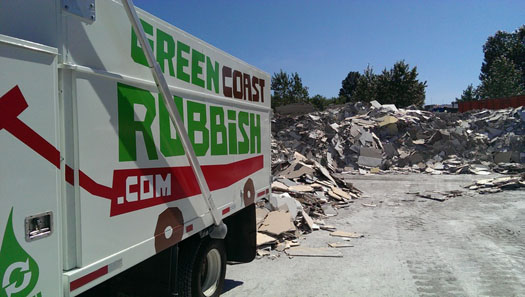
After removing the drywall, we work with New West Gypsum Recycling Ltd., who are the world leaders in the safe recycling of these materials. Since the inception of their company in 1985, their facilities have processed more than 4.5 million tonnes of gypsum! Their process involves separating the various components of the sheets, and then grinding the filtered plaster, which is eventually reincorporated into the manufacturing of new drywall panels.
We believe that small steps add up to big improvements. We’re always looking for new ways to keep recyclable materials out of our landfills, and working in conjunction with other like-minded businesses who have similar environmental mandates.
2013 BBB Torch Awards Winner: Green Coast Rubbish
/in Awards/by Green Coast RubbishWe are thrilled to announce that Green Coast Rubbish has been named the winner of the Better Business Bureau’s 2013 Torch Awards in the ‘Green’ category! This is such a big honor for us, and we’re stoked to have been recognized in a category that has previously awarded the distinction to hugely impactful businesses such as: The David Suzuki Foundation, LuluLemon, BC Association of Farmer’s Markets, SPUD!, and LunaPads International. We are thankful and humbled, and it reiterates our mandate toward offering the highest level of waste removal and recycling services for customers around the North Shore and the Lower Mainland.
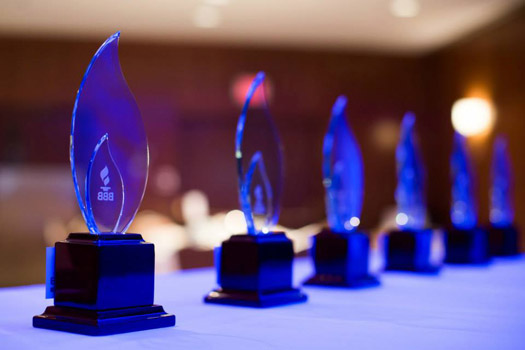
But we couldn’t do it alone. Working toward a cleaner future is a collaborative effort, and we absolutely could not have done it without the generous support of our local clients, partners, and associations within our community.
Since Day 1, GCR has been driven by our desire to preserve and protect our beautiful surroundings here in BC, and each year that commitment deepens. Whenever possible, we divert and donate materials to local non-profit organizations that can put them to good use (over 9 tonnes of goods & material in total, this past year alone). Since 2010, we’ve kept over 522 tons of waste materials away from our local landfills by recycling or diverting them (a 76% diversion rate), with our ultimate goal being a 100% diversion by 2020. And while our business is built upon helping clients effectively manage their waste, we also believe in consciously working toward bettering our own environmental footprint on a daily basis. In 2012, we managed to reduce our personal greenhouse gas emissions by 7.73%. We can all contribute to a greener future, and the smallest actions can make a notable impact on the larger environmental picture.
From our entire team at Green Coast Rubbish, we want to thank you for your continued support of our business. By being mindful, and working to recycle, reduce, reuse, and rethink — the future is looking better and brighter—one step at a time.
Paint Removal and Recycling
/in Commercial Rubbish Removal and Recycling, Paint Recycling, Renovation Waste/by Green Coast RubbishOften the easiest way to brighten and freshen up your space is to add a coat of paint. While it can work wonders to liven up your home or office, sometimes we find ourselves with an excess left-over, and are unsure of where/how to safely dispose of it. The BC Product Care Association website suggests always keeping in mind the BUD rule when purchasing materials:
- B – Buy only the amount you need.
- U – Use all the paint you buy.
- D – Dispose of any leftover paint safely.
To cut down on waste, it’s a good idea to calculate how much you’ll need initially for your project before you begin. Most paint retailers are happy to help estimate the amount you will require, which will save money and minimize paint wastage. But regardless of how closely you estimate, often you’re still left with at least a little bit remaining. If you can’t re-purpose the paint for use in future touch-ups or other projects (in the case of lighter colours, they can sometimes be used as primers), there are environmentally mindful ways of disposing of it.
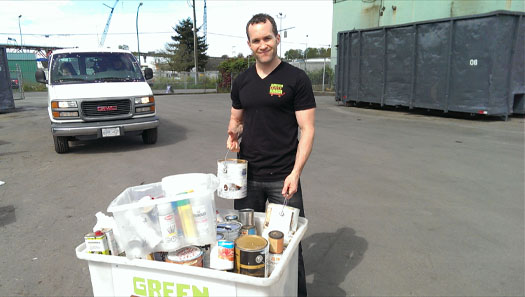
Green Coast Rubbish often helps our clients deal with removing excess materials such as paint, stain, and shellac, and diverts them to depots who specialize in their safe processing. In 2012 alone, GCR helped recycle more than 2438 litres! Many of the facilities around the Lower Mainland even offer programs where they simply give the paint away free to those who can make use of it (as long as the remaining product is properly sealed and still labeled). By being inventive about ways that we can re-purpose paint, we can make our spaces and communities more beautiful, while still protecting the earth in the process.
For more information about the types of products that can be recycled, check out the BC Product Care website. If you have questions about the types of products and waste Green Coast Rubbish can handle on behalf of your home or your business – never hesitate to drop us a line.
Foam Only & Styrofoam Recycling
/in Styrofoam/EPE Recycling/by Green Coast RubbishThe use of Styrofoam in packaging has created an alarming amount of waste in our landfills over the past few decades. Styrofoam or EPE (expanded polystyrene) is comprised of 98% air, and is non-biodegradable—which means that it will not break down on its own for a tremendous length of time. We often work with commercial clients who deal with an immense amount of Styrofoam, with no idea of where to safely dispose of it. Every 2-3 months, Green Coast Rubbish helps our customers recycle between 50-90 yards of Styrofoam by working in conjunction with another environmentally-minded local business, Foam Only.
By compressing the EPE, Foam Only can transform this material so it can be eventually be up-cycled and used for consumer items such as picture frames and door mouldings. Foam Only’s process of breaking down the EPE is fascinating. Check out the video:
We routinely work with a number of commercial clients to address their EPE disposal and logistical needs. In a recent project, we helped to recycle nearly 90 yards of Styrofoam in a single afternoon.
When compressed, the 90 yards of Styrofoam ends up being condensed into a single solid block. Pretty amazing.
By building and maintaining this important partnership with Foam Only, we assist our clients in properly disposing of this harmful waste in more environmentally viable ways.
Electronics Recycling and E-Waste
/in Commercial Rubbish Removal and Recycling, Electronics Recycling/by Green Coast RubbishWe live in a pretty amazing time. It seems every week, an announcement for some new technology changes the face of televisions, computers, or cell phones. Electronics are getting smaller (or in the case of TV’s, BIGGER), faster, and more equipped to handle all the tasks in our busy lives. But it comes at a cost. With a built-in obsolesce period for most gadgets being less than 2 years, people are finding themselves with basements and attics full of old TVs, printers, and VCR’s (remember those?). It all adds up to a huge amount of waste here in Canada each year.
It seems that many people are just unsure of what to do with it all. This fascinating (and somewhat alarming) StatsCan website shows the percentage of Canadians who have unwanted electronics in their households… in British Columbia, up to 31% of homes have unused televisions in their homes! Just wander down any alley in the Vancouver, and it’s likely that you’ll see abandoned electronics left beside dumpsters. Unfortunately, if they are not properly disposed of, these devices can get thrown into landfills, or sent to developing countries where they are dismantled for metal or parts; oftentimes without safety equipment. If handled improperly, the individuals doing it can be exposed to dangerous substances such as mercury, lead, and chromium—all known to be extremely toxic to humans, animals, and the environment.
We can help. Whether it’s a massive TV, old CRT monitor, or burnt out computer tower; whatever you have, we can take care of it for you. Quickly, easily and in the most environmentally conscious way possible. In 2012 alone, Green Coast Rubbish recycled 5.1 tonnes of electronics, and nearly 3 tonnes of TV’s. (Which, for those who are curious, equals roughly the same weight as an African Elephant).
After pickup, we work together with Encorp, a federally incorporated, not-for-profit association who is committed to recycling within our communities. They ensure that e-waste is properly processed, with all usable components diverted, and any remaining parts disposed of in safe and ethical ways.
You have a lot on your mind. Having these items collecting dust in your home creates both physical and mental clutter in your life. With a single call, we can handle it, and you can get back to focusing on what’s most important.
ReStore and Habitat for Humanity
/in Donate, Renovation Waste/by Green Coast RubbishTaking care of the environment, and helping people in our communities: these are two fundamental ideas we’ve built our company on from the start. They help us strive to reuse or recycle many unwanted materials, keeping them out of our landfills. If those materials can then be used to help local families put a roof over their heads, why wouldn’t we do everything possible to make that happen?
Because we care so much about this, we like to give shout-outs to similar minded businesses who are working hard to make a difference. One such business is ReStore, which opened it’s doors recently in North Vancouver.
ReStore is a non-profit organization that sells new and used building and home improvement materials that have been donated to them by builders and homeowners; with 100% of the money raised going toward Habitat for Humanity initiatives in the Greater Vancouver area. Run almost entirely by volunteers, ReStore/HH helps to provide modest-income families with affordable, accessible housing options (while at the same time giving some pretty sweet deals to people looking for items to complete renovation projects around their homes).
We believe in the great things that organizations like Habitat for Humanity are doing locally, so whenever possible GCR salvages usable material from the jobs we do and donates them. A recent demolition of an office on the North Shore allowed us to dismantle approximately 790 glass blocks from their walls and send them to ReStore—which could potentially translate to a resale value of thousands of dollars—toward their efforts in helping more people have homes in our communities.
Last year alone we were able to donate approximately 9 tonnes of various goods and materials to charities throughout Vancouver who can make good use of them. Check out what ReStore is doing; they are located at 126 Harbour Avenue in North Vancouver.
